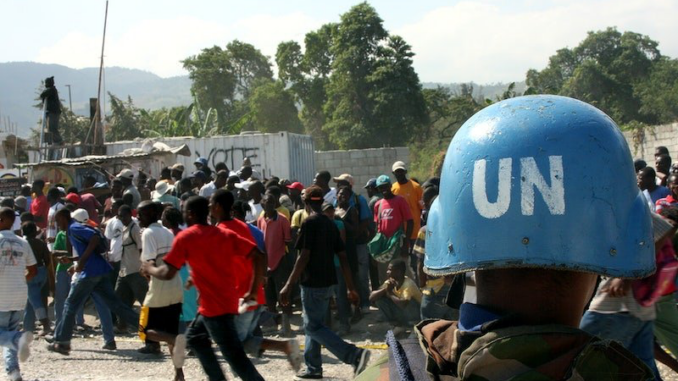
BY SAMANTHA LORISTON
Haiti’s deepening crisis, marked by escalating gang violence and political instability, has raised significant concerns about deporting Haitians living in the United States back to their homeland. “Sending them back to the environment they were fighting to escape is just not right,” said a Brooklyn resident working in sales.
With a new U.S. administration on the horizon, many everyday Haitians and their supporters are advocating for policies that prioritize human rights and develop long-term solutions for one of the Western Hemisphere’s most troubled nations. “If leaders put their heads together, they can aid the people,” said a 20-year-old Haitian student, who moved to the U.S. in January and is currently finishing her high school education. She emphasized the need for coordinated international efforts to address Haiti’s crisis and ensure protection for its diaspora.
The student also highlighted the alarming prevalence of firearms: “Most of the city now has guns,” she said, explaining how local communities are distributing weapons for self-defense as gang violence spirals out of control. However, the student acknowledged the limitations of these efforts: “They don’t have the final say.”
The dangers of the current situation extend beyond gun violence. Law enforcement agencies have been implicated in extrajudicial killings, and at least 55 cases of gang rape were documented by the United Nations during the same three-month period, underscoring the extent of human rights violations.
The assassination of President Jovenel Moïse in July 2021, carried out by a group of 28 foreign mercenaries, left a leadership vacuum that has plunged the nation into further chaos. Today, gangs control more than 80% of Port-au-Prince, acting as de facto authorities in many areas. According to a recent U.N. report, gang-related violence between July and September 2024 surged by over 30% compared to the previous quarter, leaving 1,745 people killed or injured. These armed groups impose their own rules through kidnappings, extortion, and acts of extreme brutality, displacing tens of thousands and leaving residents in constant fear.
Adding to the complexity, Haiti’s security vacuum has fostered a climate of desperation among residents. Gangs have become emboldened, controlling entire neighborhoods, burning homes, and displacing over 700,000 people. In just one week, over 10,000 people in Port-au-Prince were forced to flee their homes, many crowding into makeshift shelters such as schools. The government, lacking the resources to manage the crisis, has left humanitarian aid providers struggling to deliver essential supplies, further worsening the suffering.
The dire state of the country has created a contentious debate over U.S. immigration policy. The Brooklyn resident who spoke earlier voiced strong opposition to deporting Haitians back to such a dangerous environment. “I think it’s extremely dangerous because of the state of the country right now. Deporting thousands or even millions of Haitians back there is like sentencing them to suffer,” said the Brooklyn resident. She described the mental health challenges many Haitians face after escaping the violence and how relocating to the U.S. has given them opportunities for work, stability, and a semblance of peace.
Immigrant advocates are calling for more supportive immigration policies, including the expansion of Temporary Protected Status (TPS) that has offered relief to some Haitians, allowing them to remain in the U.S. legally while conditions in their home country remain dire. However, TPS only applies to those who arrived before a designated date.
Advocates, such as Judith Dolcé, assistant director at the Haitian Studies Institute, and Ruth Jean, founder of Jean Law Group, a South Florida immigration attorney, have called for extending this eligibility to more recent arrivals. This expansion would allow Haitians in the U.S. to remain legally and provide financial support to their families back home until the country stabilizes.
“Immigrants make up a significant part of the workforce and contribute billions to the U.S. economy,” said Dolcé “We’re losing vital resources while sending people back to life-threatening situations.”
Dolcé pointed to the broader implications of deportations. “Removing integral members of Haitian families creates destabilization in finances, childcare, and elderly care,” she said. “We are very communal people, and our connections here are critical to maintaining stability.”
She emphasized those who have been in the U.S. for an extended period are contributing to the workforce, economy, and paying taxes. “The government has a debt to the Haitian people who have been instrumental in supporting the country’s needs,” she added. “Extending TPS, creating pathways to citizenship, and implementing long-term strategies are crucial for allowing them to stay.”
